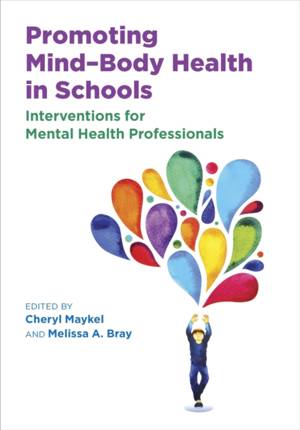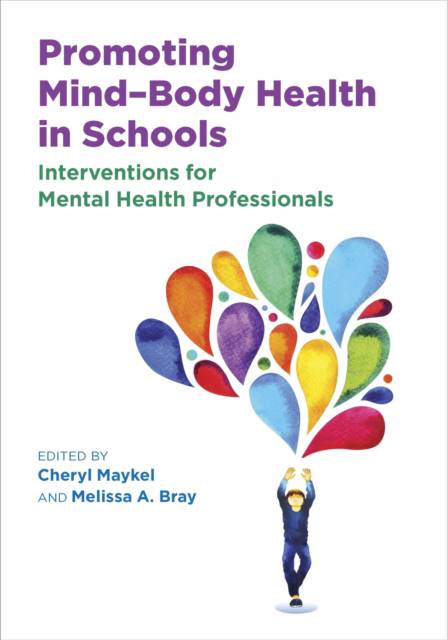
- Afhalen na 1 uur in een winkel met voorraad
- Gratis thuislevering in België vanaf € 30
- Ruim aanbod met 7 miljoen producten
- Afhalen na 1 uur in een winkel met voorraad
- Gratis thuislevering in België vanaf € 30
- Ruim aanbod met 7 miljoen producten
Zoeken
Promoting Mind-Body Health in Schools
Interventions for Mental Health Professionals
€ 74,45
+ 148 punten
Omschrijving
Many students today struggle with stress and anxiety caused by increasing academic, social, and extracurricular demands. This book provides school psychologists, counselors, teachers, and other school faculty with guidelines for improving students' mental and physical well-being, which in turn leads to improved academic performance and happier, better-adjusted students. Chapter authors review important considerations related to the benefits, limitations, and potential risks associated with implementing mind-body interventions in school settings. In addition to general guidelines, they review specific practices in depth--including yoga, mindfulness, physical activity, and hypnosis--presenting a three-tiered model for delivering services universally, with targeted groups, and with individuals. They also discuss how these and other interventions can be used to target specific issues such as eating disorders, chronic pain, sleep disorders, and trauma. Illustrative case studies demonstrate how to implement these interventions in realistic scenarios. Collaboration between mental health professionals, faculty, and parents is emphasized throughout the volume so that students' mind-body health is addressed both at school and at home.
Specificaties
Betrokkenen
- Uitgeverij:
Inhoud
- Aantal bladzijden:
- 419
- Taal:
- Engels
- Reeks:
Eigenschappen
- Productcode (EAN):
- 9781433830549
- Verschijningsdatum:
- 30/10/2019
- Uitvoering:
- Hardcover
- Formaat:
- Genaaid
- Afmetingen:
- 183 mm x 254 mm
- Gewicht:
- 907 g

Alleen bij Standaard Boekhandel
+ 148 punten op je klantenkaart van Standaard Boekhandel
Beoordelingen
We publiceren alleen reviews die voldoen aan de voorwaarden voor reviews. Bekijk onze voorwaarden voor reviews.










